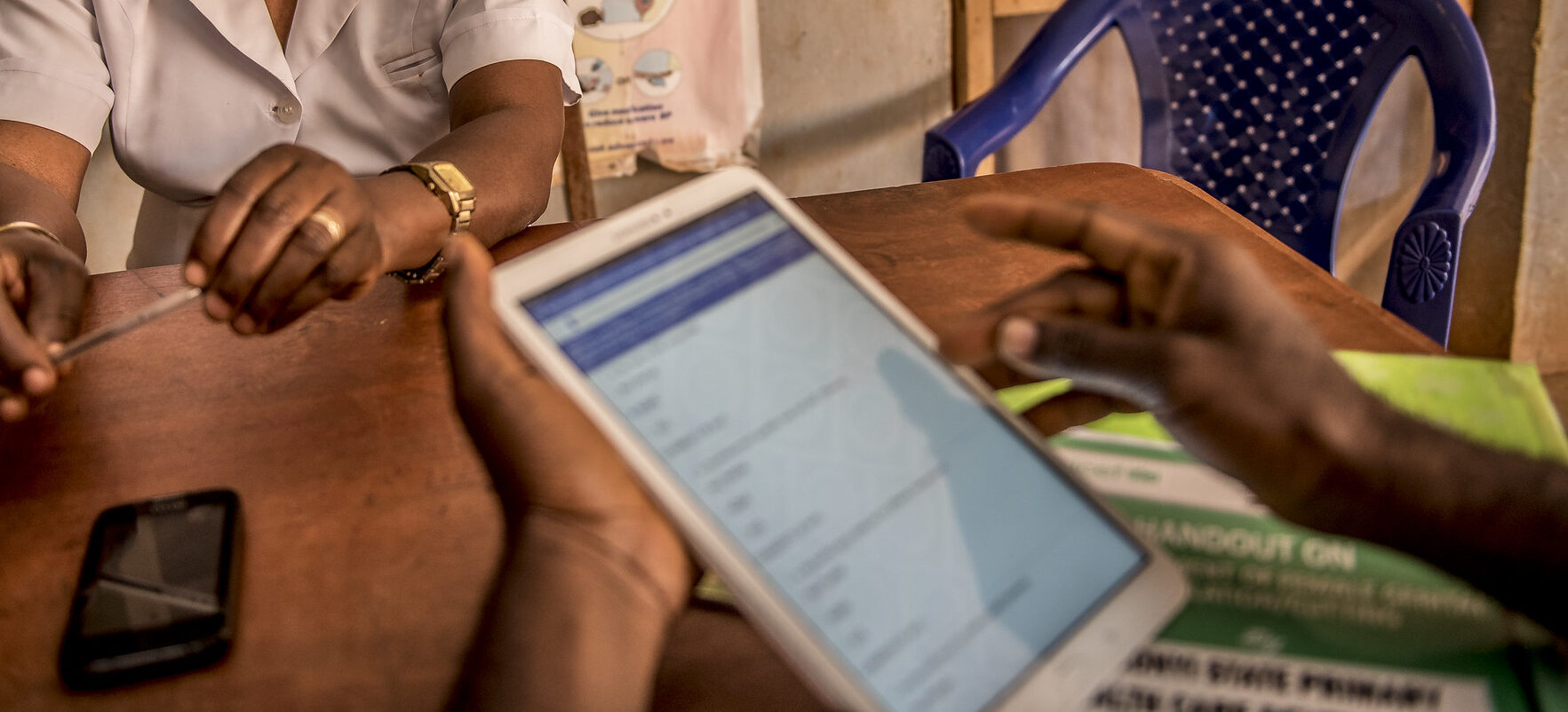At Jhpiego, AI isn’t about flashy algorithms or headline-grabbing tech. It’s about amplifying care, supporting caregivers, and strengthening care ecosystems—ensuring that intelligence reaches the front lines, not just the cloud. Our north star is to bring intelligence to people, providers, and public health systems.
Across countries, Jhpiego is embedding AI into the DNA of health delivery.
- Primary health care: We’re building AI tools that support Community Health Officers with just-in-time triage and clinical decision-making.
- Maternal and newborn health: We’re using risk stratification to flag vulnerable pregnancies — enabling proactive, life-saving care.
- HIV care: AI-powered assistants are helping teams prevent loss to follow-up, personalize adherence support, and drive differentiated service delivery.
- Cancer care: We’re exploring AI-integrated diagnostics that can accelerate screening and close the gap in early detection.
- Workforce development: Our conversational coaching avatars simulate real-world mentorship — giving nurses and midwives a 24/7 tutor in their pocket.
- Health system planning: By turning patient feedback into insights, we’re helping district managers re-shape services around what people actually need.
- Data intelligence: We’re enabling administrators to move from raw data to action — with AI dashboards that detect trends, flag risks, and improve equity in service delivery.
Why Are We Doing This? Because care is too important to leave behind.
Every day, nurses like Chipo in Kwara, Nigeria, or Seema in Madhya Pradesh, India, make split-second decisions under enormous pressure. They don’t have time to sift through dashboards or policy manuals. They need smart, human-centered tools that act like a colleague, not a computer.
And patients like Christopher, a 17-year-old managing HIV in Lusaka, or Nang Htar, a 24-year-old new mother in Myanmar struggling with postpartum depression, deserve systems that can see them, support them, and stay with them, even when they can’t make it to a clinic.
We’re doing this work because the challenges are urgent. The opportunity is even greater. And we’re just getting started.








